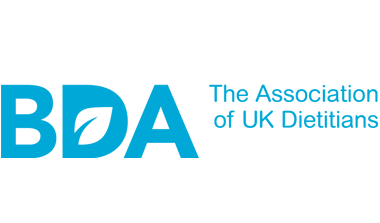Depression & Diet
This Food Fact Sheet will look at how following a healthy diet can help protect your mental health.
Eat regular meals
Eating regular meals can help your brain work at its best. Unlike other organs, your brain relies on a steady supply of glucose as its primary fuel. This comes mostly from starchy carbohydrates. Aim to eat little and often to keep your mood at its best.
Get the right balance of fats
Our brains are made of around 50 per cent fat, and our cells need fats to maintain their structures. So, you need a good supply of fats to keep your brain healthy. Try to keep a moderate intake of unsaturated fat and omega-3 in your diet, to ensure your brain is well nourished. Olive oil or rapeseed oil are great for cooking. Add nuts and seeds, and use olive or nut oil dressings on salads.
Try to decrease trans-fats as these seem to be harmful to brain structure and function (as well as heart health). Trans fats are found in processed and packaged foods, such as processed meats, ready meals, pre-packed cakes and biscuits. Instead, try to cook from scratch and use fresh foods whenever you can.
Choose more wholegrains and fruit and vegetables
Wholegrain cereals, peas, beans, lentils, nuts, seeds, fruits and vegetables are rich in a range of vitamins and minerals that your body needs to function well. They also digest slowly, helping to provide a slow and steady glucose supply to your brain and body.
These foods are also rich in B vitamins (including folate) and zinc. Recent evidence suggests that these nutrients are important in managing depression. Try to eat at least five different fruits and vegetables daily to get a range of different vitamins and minerals.
Include some protein at every meal
Protein contains tryptophan. Research suggests that consuming it may help with depression. Good sources include fish, poultry, eggs and game, but some green leafy vegetables (such as spinach), pulses and seeds are also a source. Eating protein as part of a 'little and often' eating plan can also help prevent overeating.
Include oily fish in your diet
Some researchers think that omega-3 oils, found in oily fish, may also help with depression. Aim for at least two portions of oily fish per week. Oily fish include salmon, mackerel, herring, sardines, pilchards and trout. You can find out more about including omega-3 in your diet, including if you do not eat fish, in the Omega-3 Food Fact Sheet.
Everyday tips
- Start the day with breakfast, such as wholegrain cereal with milk and fruit, multigrain toast with a poached egg, or fruit with yoghurt. Have no more than 150ml of fresh fruit juice or smoothie to drink.
- Include some starchy food (such as boiled potatoes, rice, pasta, and granary or multigrain breads) at lunch and dinner. If you are short of time, then go for a sandwich or jacket potato (filled with fish or low fat cheese and salad) or even a bowl of cereal and some fruit.
- Between meals include snacks such as fruit, vegetables, nuts, yoghurts, and oatcakes or crackers with low fat cheese, meat or fish.
What to drink?
Even slight dehydration may affect your mood. Since we know that a healthy brain contains up to 78 per cent water, it makes sense to drink plenty. Aim for around six to eight glasses (about 1.5 - 2 litres) fluid per day to stay well hydrated.
Caffeine can affect your mood. It can also lead to withdrawal headaches and to low or irritable mood when the effects wear off. Caffeinated drinks, such as coffee, cola, energy drinks, tea and chocolate, should be limited. Other non-caffeinated drinks, such as fruit squash, lemonade or herbal teas are good alternatives.
Drinking too much alcohol can cause dehydration and can lead to B vitamin deficiencies, which may make you more depressed or anxious. Limit your intake to no more than two to three drinks on no more than five days per week. It is however important to remember that alcohol itself is a depressant and may contribute towards depression or make your symptoms worse.
This is because alcohol affects the chemistry of our brain and also affects other aspects of our life including relationships with others and routines. It may be best to avoid alcohol altogether and instead choose some of the other drinks mentioned above.
I am gaining/losing too much weight. What should I do?
Changes to your body can sometimes affect your mental health. Start by asking your doctor to review any medicines you are taking. Some can affect your appetite and a change may help you to manage your weight.
If you have unplanned weight loss, you may be at risk of malnutrition and you should ask to see a dietitian for further advice.
Summary
- Eat regularly throughout the day to make sure your brain has a steady supply of energy. Include starchy carbohydrates, protein and vegetables or salad at each meal.
- Choose wholegrains, pulses, beans, lentils, and fruit and vegetables. Minimise processed/packaged foods and instead eat a variety of the items listed above to get a range of different vitamins and minerals.
- Eat a good balance of healthy fats to maintain the cell structure of your brain. Include oily fish (omega-3 fatty acids) and unsaturated fats in your diet.
- Drink plenty of fluid (six to eight glasses non-caffeinated drinks) to keep hydrated and allow your brain to work as best as it can.



































































































































